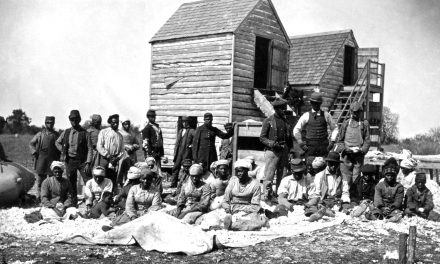
A nation that proclaims itself to be built on Christian values has increasingly embraced a form of political theology that many biblical scholars and faith leaders argue bears little resemblance to the life and message of Jesus.
At the heart of this contradiction is a passage from the Gospel of Matthew, in which Jesus delivers one of the clearest, most direct teachings of his ministry.
“[37] Then the righteous will answer him, ‘Lord, when did we see you hungry and feed you, or thirsty and give you something to drink? [38] When did we see you a stranger and invite you in, or needing clothes and clothe you? [39] When did we see you sick or in prison and go to visit you?’ [40] “The King will reply, ‘Truly I tell you, whatever you did for one of the least of these brothers and sisters of mine, you did for me.'” – Matthew 25: 37 – 40
This message, delivered as part of Jesus’ discourse on the final judgment, makes no mention of doctrine, rituals, or religious affiliation. Instead, it centers on compassion, service, and solidarity with the poor, the sick, the imprisoned, and the stranger. These are groups that, today, are most often vilified or ignored by the loudest voices claiming the mantle of Christianity in American politics.
While the Bible contains more than 2,000 verses that instruct believers on how to treat the poor, which include commands to care for widows, immigrants, and the marginalized, the dominant expressions of faith in modern American public life often focus instead on cultural dominance, punishment, and exclusion.
This trend has accelerated alongside a growing movement to recast the United States not as a secular democracy, but as a theocratic state shaped by conservative Christian values. In recent years, numerous politicians and religious leaders have publicly called for the Bible to replace the Constitution as the law of the land. And while many of these individuals invoke Christ as their authority, their policies consistently target those whom Jesus explicitly defended.
Immigrants, the poor, LGBTQ+ individuals, incarcerated people, and non-Christian religious minorities have all been scapegoated in recent legislation, political rhetoric, and church activism. Refugees are described as threats. Families living in poverty are demonized as burdens. Gender non-conforming people are framed as predators. All of this is done in the name of “Christian values.”
But these values stand in sharp contrast to the teachings of Jesus, who repeatedly instructed his followers to embrace the outcast, heal the sick, visit the imprisoned, and give to the poor without expecting repayment. Nowhere in the Gospels does Jesus express concern with political power or national identity. Nowhere does he advocate the persecution of others based on belief, identity, or origin.
Yet a 2022 Pew Research Center study found that nearly half of all Americans who identify as evangelical Christians believe the U.S. should declare itself a Christian nation. Many support policies that restrict immigration, cut social welfare, criminalize homelessness, and limit the rights of religious minorities — even when those policies directly harm the “least of these.”
The dissonance is especially striking when viewed through the lens of Matthew 25. The chapter describes a final judgment in which people are divided not by what they believed, but by how they treated the vulnerable. Those who cared for others are welcomed into the kingdom of God. Those who failed to do so are condemned. Not because they held the wrong theology, but because they ignored human suffering.
Today’s Christian Nationalists often portray themselves as protectors of moral truth. But their policies do not feed the hungry, clothe the naked, or welcome the stranger. They criminalize poverty. They vilify migrants. They dismiss systemic injustice as personal failure. In doing so, they adopt the role of the priest and Levite in the parable of the Good Samaritan — passing by the injured on the road while preserving their own purity.
For many theologians and faith-based activists, this betrayal of Christ’s message is not merely a moral failing — it is a political strategy. By claiming divine endorsement for authoritarian policies, these figures have transformed religion into a tool of control. Their Christianity is not about mercy or sacrifice; it is about identity and dominance.
This version of the faith is often propped up by selective biblical interpretation. Verses are cherry-picked to support opposition to abortion or same-sex marriage, while the overwhelming scriptural emphasis on justice, mercy, and humility is minimized or ignored. The Bible’s radical teachings on wealth: “Sell your possessions and give to the poor,” for example, are rarely invoked by those advocating prosperity gospel or Christian capitalism.
Many conservative churches have also aligned themselves with political movements that actively undermine the teachings of Jesus. Support for capital punishment, militarism, and anti-refugee policies is common. Compassion is replaced with punishment. Grace is reserved only for those who conform.
The danger of this distortion goes beyond mere hypocrisy. When religion is wielded to justify oppression, it not only betrays the message of Christ, it also fuels a broader erosion of democratic norms. Those calling for a Christian theocracy often do so with the assumption that their interpretation of Christianity should be the standard for all. But Christ himself rejected this kind of coercive power.
Throughout the Gospels, Jesus never ruled a government, commanded an army, or passed laws. He served. He washed the feet of his disciples. He challenged the religious elite for their legalism and pride. He spent time among the sick, the poor, and those condemned by society. And in his final moments, he was executed by the state. Not as a revolutionary with weapons or followers ready to fight, but as a man accused of defying imperial power with a message of humility and love.
In contrast, many modern-day Christian leaders in the U.S. are cozy with power, wealth, and influence. Rather than confronting the empires of their day, they build empires of their own, like megachurches, media platforms, and political machines. In place of the Beatitudes, which bless the meek and the peacemakers, they preach fear, entitlement, and vengeance. And in place of Jesus’ clear directive — to see him in the hungry, the stranger, and the prisoner — they turn away.
This failure is not theological alone. It has real-world consequences. Policies inspired by Christian Nationalism have led to family separations at the border, cuts to food assistance, rollbacks of health care access, and bans on teaching accurate history. These are not abstract moral debates, they are life-and-death issues for millions of Americans.
It is precisely in this context that Matthew 25:40 resounds with such clarity. “Whatever you did for one of the least of these… you did for me.” This is not a metaphor. It is the foundation of Christian ethics. It is a radical statement about the divine presence in human suffering, and about the failure to see that presence when our faith becomes aligned with dominance rather than service.
The irony is painful. Many of the same Christians who demand Ten Commandments monuments on courthouse lawns cannot recite the Sermon on the Mount. They rally around slogans like “In God We Trust” but are unmoved by the thousands of biblical pleas for justice, equity, and compassion. They claim persecution when asked to extend rights to others, yet are silent as their own political allies strip away protections from society’s most vulnerable.
These contradictions have not gone unnoticed by other religious traditions, or by those with no religion at all. For many Americans, the loudest voices of Christianity have become synonymous with cruelty and control. This perception has driven younger generations away from organized religion in record numbers, not because they reject Jesus, but because they do not see him reflected in the institutional church.
Still, voices remain within the Christian tradition who challenge this corruption of faith. They call attention to the inconvenient truths of scripture: that Jesus was a brown-skinned Jew living under occupation, that his messages centered on the poor and the outcast, that he condemned the self-righteous and uplifted the marginalized. These truths are not partisan. They are gospel.
In the end, Christianity’s credibility will not be measured by the number of laws passed in its name, but by its fidelity to the life and words of its founder. If believers claim Jesus as Lord, they must reckon with what he actually said, and whom he stood with. And if America claims to be a Christian nation, then it must ask whether it serves Christ in its politics, its policies, and its people.
Matthew 25 offers a litmus test. It does not ask who you voted for, which creed you profess, or how loudly you defend religion in the public square. It asks if you fed the hungry. If you welcomed the stranger. If you visited the imprisoned. Because in those acts, and only in those acts, Christ is encountered.
America may yet choose to follow the path it claims. But if it does not, then it must stop pretending to be a Christian nation. Because the judgment described in scripture does not rest on the flags we wave or the slogans we repeat. It rests on how we treated the least of these.
© Photo
Jennifer Wallace and Josh Imerbin (via Shutterstock)














